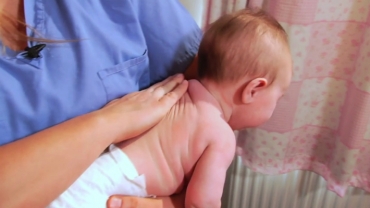If you are choosing to breastfeed, I hope this video will provide you with great information as you begin your breastfeeding journey and return home with your baby. Breast milk offers many benefits to you and your baby.
➤ Benefits of Breastfeeding:
Protect your baby from illnesses
- Colds
- Respiratory, ear, and throat infections
Decrease risk of chronic conditions
- Allergies, diabetes, and obesity
Decrease risk of sudden infant death syndrome
Benefits for you, too
- Lower rates of breast and ovarian cancer
- Less postpartum bleeding
- Postpartum weight loss
While breast milk is the biological norm for babies, it will take some practice.
Your nurse will assist you and you will have access to a lactation consultant should the need arise while you're in the hospital. Let's discuss a few ways you can get your breastfeeding journey off to a good start.
➤ Skin-to-Skin Contact:
Continue skin-to-skin contact as much as possible with your baby
This starts your bonding and breastfeeding journey
- Keeps your baby warm and calm
- Stabilizes your baby's blood sugars.
➤ Rooming in and early feeding cues:
Rooming in allows you to recognize early feeding cues
- Opening eyes, licking, and moving hands to mouth.
Crying is a late sign of hunger
Feeding at the first sign of hunger will allow the feeding to go more smoothly
➤ Optimizing Positioning:
This is an opportunity to look for signs of effective feeding
- Keeps both you and your baby more comfortable
Optimal positioning ensures your baby is getting enough milk
Risk of Supplementation
- The American Academy of Pediatrics recommends exclusive breast milk feeding for the first six months of life.
Offering your baby anything else, such as formula, sugar water, or milk can:
- Increased illness
- Decrease your baby's desire to breastfeed
- Decrease your milk supply
- 3755 views













